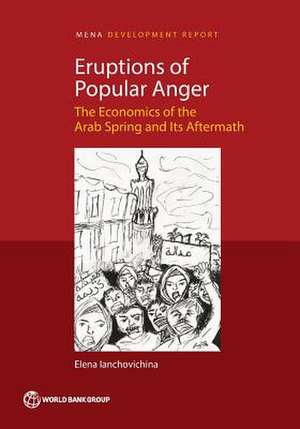Eruptions of Popular Anger
Autor Elena Ianchovichinaen Limba Engleză Paperback – feb 2018
Preț: 261.05 lei
Nou
Puncte Express: 392
Preț estimativ în valută:
49.95€ • 54.43$ • 42.09£
49.95€ • 54.43$ • 42.09£
Carte tipărită la comandă
Livrare economică 23 aprilie-07 mai
Preluare comenzi: 021 569.72.76
Specificații
ISBN-13: 9781464811524
ISBN-10: 1464811520
Pagini: 174
Dimensiuni: 179 x 255 x 32 mm
Greutate: 0.37 kg
Editura: World Bank Publications
ISBN-10: 1464811520
Pagini: 174
Dimensiuni: 179 x 255 x 32 mm
Greutate: 0.37 kg
Editura: World Bank Publications
Descriere
This analysis of the Arab Spring aftermath sheds light on the interplay between economic, behavioural, institutional, and political factors that have influenced the transitions across the region and the risk of civil conflict. The study draws on four main bodies of literature on poverty and inequality, subjective well-being, civil conflict, and macroeconomics.
